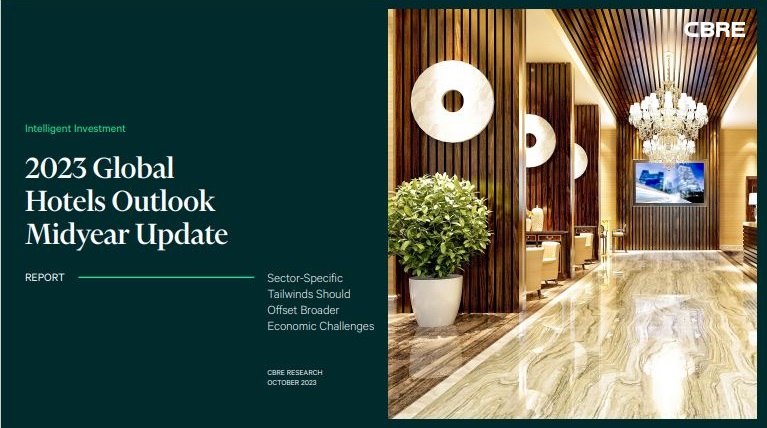Decca Records famously passed on the Beatles, because “Guitar groups are on the way out”: and in 1903 the President of the Michigan Savings Bank advised Henry Ford’s lawyer not to invest in his client’s business because “the horse is here to stay… but the automobile is just a fad”. And then, in 1977, Ken Olsen, Founder and President of Digital Equipment Corporation, confidently predicted “nobody will ever have a computer in their home...its just never going to happen” (his company duly collapsed in 1998).
From which, we might conclude, any attempt to see too far into the future is predestined to failure: but I’m going to give it a go anyway, where Ken Olsen, the Michigan Savings Bank, and an unknown A&R man at Decca all conspicuously failed.
So what does 2022 have in store for the Travel and Hospitality sector?
I’ve picked three areas to watch out for, and (with fingers crossed) here they are:
1. The Demise of the Generic Hotel
It may not be today, or even tomorrow, but it will be soon: hotels as welcoming as inner city railway stations, and friendly as an unscheduled tax audit, are finally on their way out. Having stumbled on their last legs for the best part of a decade, 2022 will finally be the year that kills them off altogether. And the reason can be summed up in one word (or acronym): COVID.
Ever since COVID restrictions were first introduced in February 2020, people across the World have grown used to living with a sense of day-to-day social isolation, deprived of the vital engagements and interactions so vital to all our lives. But as lockdowns were progressively eased this year, in combination with a series of hugely successful vaccination programmes (especially in India where 670 Million are now fully vaccinated), today’s travellers are no longer content to be treated as a unit of consumption: welcomed and “catered for” in uniform tones of beige and grey. As they emerge from two years of isolation, blinking into the light, tomorrow’s travellers will more and more demand hotels that have a personality and sense of passion that matches their own individual needs. Generic Hotels simply don’t fit the bill anymore, and they’ll be lucky to see the New Year out.
2. Sustainability
Recent surveys consistently report a majority of today’s travellers ranking sustainability at the top of their list when it comes to deciding where to stay: for example, 83% of those surveyed last September for The Vacationer (www.thevacationer) listed sustainable travel as either “important” or “very important”, 75% routinely include sustainability in their travel plans, and 71% would be prepared to pay more to lower their carbon footprint when they do travel. None of that, of course, should come as any surprise, given travellers are more aware than ever of the scale of the environmental challenges facing our fragile planet.
That’s why companies like Eco Hotels (www.ecohotelsglobal.com), companies that have always placed sustainability at the forefront of their business models, will increasingly reap the benefits of a changing demographic.
Eco Hotels is a leader in the field: building energy efficiency and sustainable waste management into its operating structure from the ground up, sourcing supplies locally to support local communities, and managing operations sensitively with an appropriate appreciation for the demands of the circular economy.
So expect to see an increased move towards eco friendly travel and eco friendly destinations in the years ahead…starting in 2022. As the world moves beyond COVID, travellers will vote increasingly with their feet and decide against non-sustainable operators.
3. Smart Hotels
Emerging technologies have developed at an unprecedented pace and with an unparalleled impact on our daily lives, especially through use and application of the Internet of Things (“IoT”): household devices are networked together so as to exchange information, enabling commuters standing on the platform at Mumbai Central to turn the heating on and boil a kettle using their mobile phone, half an hour before getting home. And data passing between the devices (or things) can be used to identify core requirements of individuals, or groups of individuals, so as to enhance the overall delivery experience: meaning the kettle will boil and the bath will fill, even if you forget to tell one of them to fill and the other to boil: the sensors on the bath can tell the kettle what to do (and vice versa).
The benefits of IoT Technologies within a hotel environment are obvious: devices across the facility engage with one another to meet individual and group needs (without being told), and the overall guest experience is radically enhanced and rendered more efficient. If, for example, a guest is vegetarian, this information can be passed from the check in device to the kitchen, creating a custom made menu for guests that can be passed automatically for viewing on the screen in their room.
Expect to see more, much more, of this kind of IoT technology as we move into 2022.
So those are my guesses for what lies ahead: let’s check in together next December to see how things turned out, but until then I hope you had a splendid Christmas and wish you all a happy and prosperous New Year!






